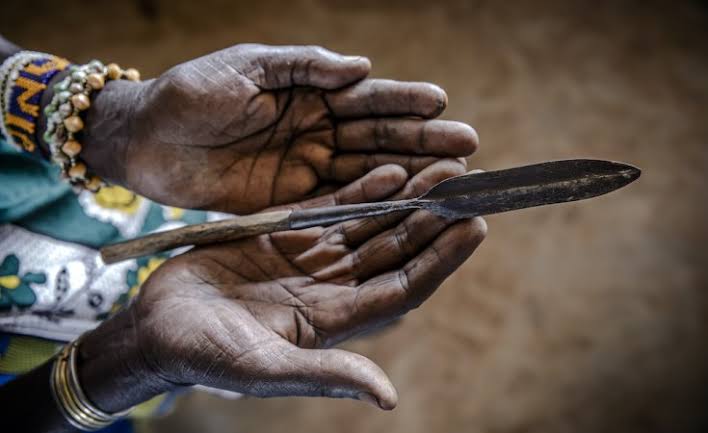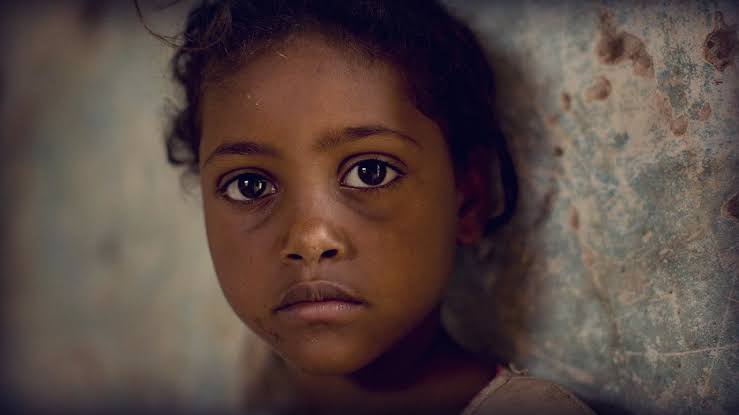Nigeria, due to its large population, has the highest number of female genital mutilation (FGM) cases worldwide, accounting for about 10% of the global total…
By John Augustina
The ubiquity of female genital mutilation (FGM) has significantly reduced over the last decade, yet it is still being practised in some parts of Nigeria.
Nigeria, due to its large population, has the highest number of female genital mutilation (FGM) cases worldwide, accounting for about 10% of the global total, that is 20 million of the estimated 115-130 million circumcised women in the world.
Traditionalists in the different parts of Nigeria who practise FGM are in its vehement support as they see it as a necessary cultural rite for transitioning into womanhood, which guarantees chastity for the woman or her ability to refrain from promiscuity. Female Genital Mutilation is an age-long, harmful traditional practice that violates female reproductive rights as well as her body’s integrity. It has become a global problem.
FGM, considered a cruel practice, stems from different misconceptions and beliefs such as that it increases sexual pleasure for men, guarantees a woman’s virginity, a requirement for marriage for proper and quality bride price, and for family honour; and the belief that it increases fertility in women and ensures the survival of their children in the womb.
In reality, mutilation causes severe pain, shock, haemorrhage, many forms of infection, urine retention, ulceration of the genital region and injury to adjacent tissue, fever, septicemia, etc.

Haemorrhages and infections are the leading causes of death, and other long-term health issues such as complications during childbirth, anaemia, formation of cysts, abscesses and keloid scars, damage to the urethra resulting in urinary incontinence, dyspareunia (painful sexual intercourse), sexual dysfunction, as well as trauma as girls are pinned down violently during the painful procedure. Additional risks include menstrual problems, infertility, defibulation and reinfibulation.
An estimate from Nigerian demographics and health Survey shows that one in every four Nigerian women aged between 15 and 49 has been circumcised, especially among the Igbo and Yoruba tribes.
Women in Igboland suffer many more dehumanising practices emanating from culture and custom. The survey ranks Osun highest in prevalence of FGM at 76.6%; Ebonyi follows closely at 74%, and Ekiti at 72.3%. Imo and Oyo states come fourth and fifth place with prevalence rates of 68% and 65.6% respectively.
An article by Brook.org reveals a horrifying story of a young woman who was circumcised alongside her sister at the age of 6. Narrating her story, she said, “They tied me down, I was fighting as hard as I could, but they were stronger. I was screaming. The old woman, my aunt, used a razor blade it was clean and new, but there was no anaesthetic when she cut me.
I have no memory at all of her cutting me its blank. But then another woman came, she was from a different city, and she gave me an injection before they stitched me up. They tied my legs together the whole way down so I couldn’t open my legs, I was like that for three or four weeks.” This, out of many experiences, has left many women traumatised.

In 2018, Mrs Bukola Osukoya cried out to Nigerians to rescue her 11-year daughter from the hands of her in-laws who were bent on circumcising her in followance of their tradition. Her reaction stemmed from the number of deaths she had witnessed who had died from circumcision.
In 2017, Mrs Oluwakemisola Falade and her husband from Akoko South-East Council of Ondo state had cried out to the government and Civil Society Organisations to rescue her two daughters from the hands of members of the community who were threatening to forcefully circumcise them. Following this cry, the community demonstrated hostility towards them by threatening to attack them for speaking against the community’s highly-esteemed tradition.
In many communities, this practice is upheld as a religious requirement. It is performed by Muslims, Christians, and pagans. However, it is carried out in some Muslim communities with the belief that it is demanded by the Islamic faith. In reality, there is no documentation of this practice in the holy books of these religions.
In the same light, none of the myths surrounding this process have been proven to be true. They are mere fallacies indoctrinated into the cultural systems in Nigeria and other countries by ancients who did not have the privileges of science and technology. “No child born with its mothers clitoris intact will survive. Every girl born in this community must be circumcised so that they can have babies who will live. It is the culture and nobody can stop it,” says a member of Illawe community in Ekiti State in an interview conducted in 2018 by Bornperfect.
Data shows that significant steps have been taken to control this practice across the country, but many families and communities are adamant towards the change the society seeks. For instance, the Violence Against Persons Prohibition (VAPP) Act against FGM and all other gender-based violence which were passed in 2015, automatically makes FGM illegal in Nigeria, yet it is still prevalent in the country.
There is need for the absolute abolishing of female circumcision. The laws put in place are not working as quickly and effectively as is required. A multidisciplinary approach involving legislation, health care professional organisations, empowerment of the women in the society, and education of the general public at all levels with emphasis on the dangers and undesirability of FGM, is paramount.
Families should be oriented about the lifetime effects of this practice. Beyond the untimely and reckless deaths of innocent young women, there is the emotional and psychological incapacitation, trauma, disillusionment and ennui. The consequences of FGM should be drilled into community members and rulers in order to save their daughters from future terrors. They must be made to understand that a mutilated clitoris cannot hinder a woman who has taken a decision to be promiscuous. Likewise, men do not need mutilated women to satisfy them sexually. Women should also be encouraged to cry out for rescue in such life-threatening situations.
No woman should be made to go through the torture of genital mutilation.
John Augustina is a 400 Level student of Mass Communication at the University of Benin.





I wouldn’t subject myself to this kind of deadly practice, it is not right for a woman to be subjected to such cruelty, I think they should be educated more on the health hazards attached to this practice…. And even the psychological trauma attached to it. Thankyou lady T foe writing this.